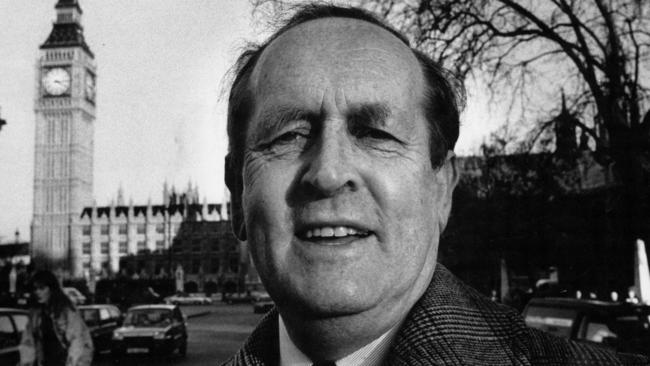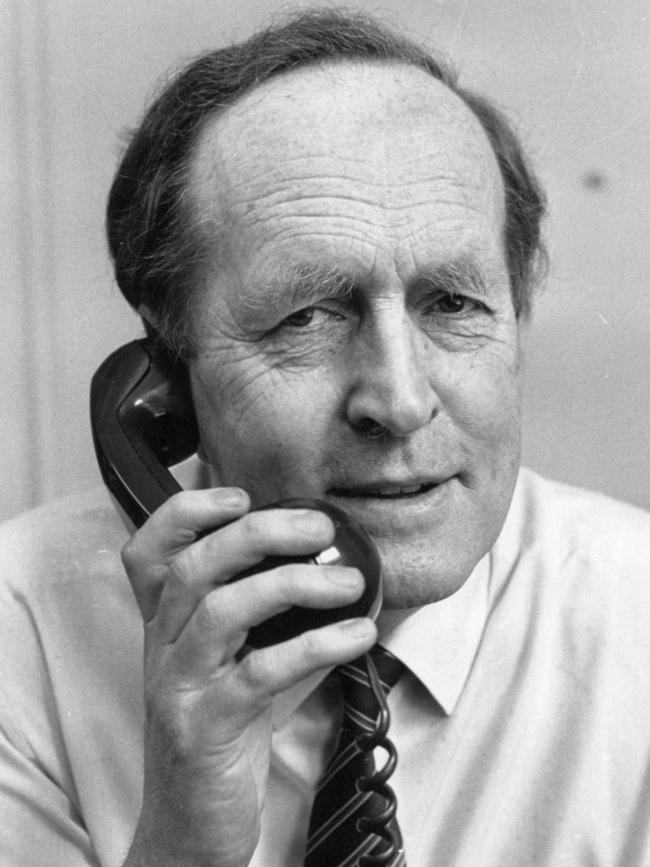Murray Hedgcock: A journalist who played the long game successfully as a team man
Newspapers, like cricket, are a team game and no one knew that better than long-serving correspondent and News Corp London bureau chief Murray Hedgcock.

Murray Hedgcock, journalist, born South Melbourne, February 23, 1931. Died, London, May 6, 2021 aged 90
Newspapers, like cricket, are a team game and no one knew that better than long-serving correspondent and News Corp London bureau chief Murray Hedgcock.
Like any good captain, Hedgcock commanded the respect and loyalty of the selectors and his team. He did this with a combination of gentle, but firm, authority and leadership by example. It was not just in the management of the unsleeping responsibilities of the bureau; he wrote lyrically and with well-founded authority on cricket and tennis — in the summer months his staff saw a little less of him. Over his enduring innings in charge of the London bureau it went from serving a handful of newspapers in Australia to supplying words and pictures to the biggest daily and Sunday newspapers in every state (with, at one stage, five metropolitan mastheads in Victoria alone) and, of course, always The Australian.
Hedgcock’s love of journalism was predated by his interest in sport.
Born to a postmaster father he moved around Victoria as a youngster and, at one point, his headmaster was legendary Bodyline Ashes batsman Bill Woodfull, a dignified man of values who declined a knighthood for services to cricket.
Hedgcock “drifted into journalism”. A bank clerk, he started writing badminton reports on a team in which he played.
He served a three-year cadetship on the Geelong Advertiser and in 1953 travelled to England.
It was the coronation year, but Hedgcock was there, he hoped, to see Lindsay Hassett’s team retain the Ashes. They lost 1-0.
Running short of money he found a job on a South London newspaper that came with a press pass to The Oval in Kennington. Back in Australia, he turned up on an afternoon daily, Adelaide’s The News. Its proprietor was Rupert Murdoch. There, according to The Times diarist Patrick Kidd, writing on Saturday, a pivotal event took place: “He was given the chance to play in the same side as Don Bradman for the editor’s XI, but the match was cancelled when the editor was sacked by the owner.
“Perhaps it was small consolation that Rupert Murdoch then posted Murray to the London office, where he stayed. Murray later reflected that it was probably for the best, saying ‘I was terrified of running Bradman out’.”

At the weekend, Murdoch, the executive chairman of News Corp, remembered Hedgcock: “Murray was a great and wise friend and adviser for many years.” Hedgcock didn’t drink, smoke, gamble, drive or swim — “some Aussie”, he would say — and neither was he keen on travel, describing to his old friend, former News Corp editor Piers Akerman, that “a serene and leafy southwest London suburb offers me a satisfying bolthole”.
Kidd added on the weekend that “Lord’s will be a slightly less lovely place this summer after the sudden death (of) Hedgcock”.
“We had been friends since 2006 after I sat next to him at a dinner of the PG Wodehouse Society. He edited an anthology of the author’s writings on cricket, called Wodehouse at the Wicket, and helped to form the society’s cricket team, the Gold Bats, writing regulations for their match against the Sherlock Holmes Society that reflected the Laws in 1895 and his own taste.
“Helmets, reverse-sweeps and leg-side hits were frowned on, while fielders were banned from diving unless they had hit the ground ‘through ineptitude or decrepitude’. Each side also had to select an underarm lob bowler.”
Another dear friend, Rex Jory, who knew Hedgcock from Adelaide days said: “Just two weeks ago I sent him a picture from Upwey in the Dandenongs where he once lived. He responded in his usual immaculate way. His vice was collecting cricket books. He had one of the great collections in the world, which devoured his house. He taught me so much about the fundamentals of journalism. I had a rapport with Bradman — (that) Murray always said was wasted on me.”
In 2016, Hedgcock wrote of John Wisden, after whom the bible of cricket — published annually since 1864 — is named (and of which Hedgcock was a completist collector), that he “was no bullying fast bowler; he was known for unfailing good humour, a genial disposition, as well as great keenness and tremendous stamina”.
Those words accurately describe the Hedgcock we all knew.




To join the conversation, please log in. Don't have an account? Register
Join the conversation, you are commenting as Logout